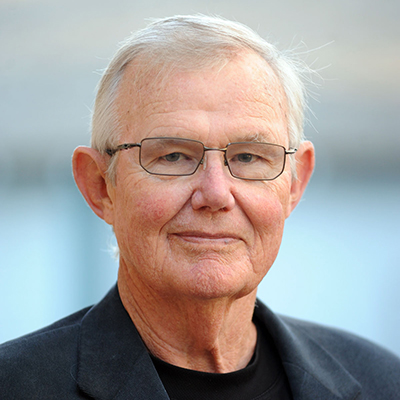Mississippi Today
Doug Shanks loved, lived baseball, and his contributions will live on



News of the death of baseball’s Doug Shanks earlier this week brought back several vivid memories, including the one that follows.
This was a bluebird Delta day, in February in 2010. The previous day’s rainstorm had passed. The ground was soggy, but the sky was cloudless and a deep blue. The bright sun brought warmth, but the air was crisp and cool. It was a splendid day to be alive. Opening Day always is. And, as opening days go, this one was extra special.
Shanks and his Mississippi Valley State baseball assistant coaches were busy, helping their one-man “grounds crew” prepare the soaked field for the season opener. The Delta Devils, who called themselves the Ragamuffins, were scheduled to play Notre Dame. Yes, that Notre Dame, the one that spent more money on its slick baseball media guide than Shanks had in his entire MVSU baseball budget. Notre Dame had spent $60 million on football the previous fall. Valley’s entire athletic budget was $3 million.

The one-man Valley grounds crew wore a green and white striped uniform, but it wasn’t because green and white are two of the MVSU school colors. No, he was on loan from a nearby prison.
“Hardest worker you ever saw,” Shanks told me. “But we have to have him back at the farm by 4.”
Shanks and his coaches had worked through the night and all morning to make Magnolia Field playable. They stopped only to watch Notre Dame’s luxury bus pull up, and the strapping Fighting Irish players step off in their navy blue jerseys, with gold lettering and green shamrocks on the sleeves. Some wore those bright gold batting helmets.
Yes, Shanks brought Notre Dame to Itta Bena. I remember telling Shanks it could go on his tombstone.
Notre Dame won that day, 12-4, but there were no losers.
I remember asking Irish coach Dave Shrage why he would bring his proud program to Itta Bena and a baseball field that guaranteed standing room only crowds because there was almost no place to sit. Shrage said that before he took the Notre Dame job he had been at Evansville and had made a trip down south to play games in Memphis. Rain spoiled that so he called Shanks at MVSU looking for a place to play. Long story short: The two team buses met in Grenada and headed south on I-55 with Shanks promising that he knew every baseball field in Mississippi and would find a dry one.
They wound up playing a double-header at Smith-Wills. Shrage never forgot the effort or the hospitality. That had been the real reason for Notre Dame coming to Itta Bena. Shrage was replaying a favor.
Interesting – isn’t it? –those Valley-Evansville games were played at Smith-Wills Stadium. Shanks, himself, was largely responsible for the stadium being built. As a young Jackson CIty Commissioner, Shanks had spearheaded the plan to build the stadium and bring a minor league franchise to Jackson, which led to the Jackson Mets coming to Jackson in 1975. What’s more it was Shanks’ idea to bring all Dizzy Dean’s memorabilia to Jackson and create the Dizzy Dean Museum adjacent to Smith-Wills.
Many long-time readers will know the rest of that story: The Dean Museum was a huge part of the genesis of the Mississippi Sports Hall of Fame Museum being built across the parking lot from Smith-Wills. The Dizzy Dean wing of the MSHOF on the second floor remains the highlight of any visit to the shrine.
Shanks was a huge part of all that. Selling Dizzy Dean on the idea of moving his stuff from Wiggins to Jackson was not hard, Shanks once told me. But Pat Dean, Diz’s wife, ran the show. Shanks convinced them both that so many more people would see Diz’s treasures in the state’s biggest city. And they have.
He was a baseball man, Doug Shanks was. His daddy, Fred Shanks, had been the great Boo Ferriss’s catcher at Mississippi State. Doug Shanks was active in youth baseball before and after his successful 15-year stint at Valley as the SWAC’s first White baseball coach. He began the Jackson 96ers, a summer, high school-aged travel team, that became a national powerhouse.
“Doug loved baseball and he lived it,” was the way Mississippi Sports Hall of Fame baseball coach Hill Denson put it, “Mississippi baseball is a whole lot better because of Doug Shanks.”
This article first appeared on Mississippi Today and is republished here under a Creative Commons license.
Mississippi Today
On this day in 1977, Alex Haley awarded Pulitzer for ‘Roots’

April 19, 1977

Alex Haley was awarded a special Pulitzer Prize for “Roots,” which was also adapted for television.
Network executives worried that the depiction of the brutality of the slave experience might scare away viewers. Instead, 130 million Americans watched the epic miniseries, which meant that 85% of U.S. households watched the program.
The miniseries received 36 Emmy nominations and won nine. In 2016, the History Channel, Lifetime and A&E remade the miniseries, which won critical acclaim and received eight Emmy nominations.
This article first appeared on Mississippi Today and is republished here under a Creative Commons Attribution-NoDerivatives 4.0 International License.![]()
Mississippi Today
Speaker White wants Christmas tree projects bill included in special legislative session

House Speaker Jason White sent a terse letter to Lt. Gov. Delbert Hosemann on Thursday, saying House leaders are frustrated with Senate leaders refusing to discuss a “Christmas tree” bill spending millions on special projects across the state.
The letter signals the two Republican leaders remain far apart on setting an overall $7 billion state budget. Bickering between the GOP leaders led to a stalemate and lawmakers ending their regular 2025 session without setting a budget. Gov. Tate Reeves plans to call them back into special session before the new budget year starts July 1 to avoid a shutdown, but wants them to have a budget mostly worked out before he does so.
White’s letter to Hosemann, which contains words in all capital letters that are underlined and italicized, said that the House wants to spend cash reserves on projects for state agencies, local communities, universities, colleges, and the Mississippi Department of Transportation.
“We believe the Senate position to NOT fund any local infrastructure projects is unreasonable,” White wrote.
The speaker in his letter noted that he and Hosemann had a meeting with the governor on Tuesday. Reeves, according to the letter, advised the two legislative leaders that if they couldn’t reach an agreement on how to disburse the surplus money, referred to as capital expense money, they should not spend any of it on infrastructure.
A spokesperson for Hosemann said the lieutenant governor has not yet reviewed the letter, and he was out of the office on Thursday working with a state agency.
“He is attending Good Friday services today, and will address any correspondence after the celebration of Easter,” the spokesperson said.
Hosemann has recently said the Legislature should set an austere budget in light of federal spending cuts coming from the Trump administration, and because state lawmakers this year passed a measure to eliminate the state income tax, the source of nearly a third of the state’s operating revenue.
Lawmakers spend capital expense money for multiple purposes, but the bulk of it — typically $200 million to $400 million a year — goes toward local projects, known as the Christmas Tree bill. Lawmakers jockey for a share of the spending for their home districts, in a process that has been called a political spoils system — areas with the most powerful lawmakers often get the largest share, not areas with the most needs. Legislative leaders often use the projects bill as either a carrot or stick to garner votes from rank and file legislators on other issues.
A Mississippi Today investigation last year revealed House Ways and Means Chairman Trey Lamar, a Republican from Sentobia, has steered tens of millions of dollars in Christmas tree spending to his district, including money to rebuild a road that runs by his north Mississippi home, renovate a nearby private country club golf course and to rebuild a tiny cul-de-sac that runs by a home he has in Jackson.
There is little oversight on how these funds are spent, and there is no requirement that lawmakers disburse the money in an equal manner or based on communities’ needs.
In the past, lawmakers borrowed money for Christmas tree bills. But state coffers have been full in recent years largely from federal pandemic aid spending, so the state has been spending its excess cash. White in his letter said the state has “ample funds” for a special projects bill.
“We, in the House, would like to sit down and have an agreement with our Senate counterparts on state agency Capital Expenditure spending AND local projects spending,” White wrote. “It is extremely important to our agencies and local governments. The ball is in your court, and the House awaits your response.”
This article first appeared on Mississippi Today and is republished here under a Creative Commons Attribution-NoDerivatives 4.0 International License.
Mississippi Today
Advocate: Election is the chance for Jackson to finally launch in the spirit of Blue Origin

Editor’s note: This essay is part of Mississippi Today Ideas, a platform for thoughtful Mississippians to share fact-based ideas about our state’s past, present and future. You can read more about the section here.
As the world recently watched the successful return of Blue Origin’s historic all-women crew from space, Jackson stands grounded. The city is still grappling with problems that no rocket can solve.
But the spirit of that mission — unity, courage and collective effort — can be applied right here in our capital city. Instead of launching away, it is time to launch together toward a more just, functioning and thriving Jackson.
The upcoming mayoral runoff election on April 22 provides such an opportunity, not just for a new administration, but for a new mindset. This isn’t about endorsements. It’s about engagement.
It’s a moment for the people of Jackson and Hinds County to take a long, honest look at ourselves and ask if we have shown up for our city and worked with elected officials, instead of remaining at odds with them.
It is time to vote again — this time with deeper understanding and shared responsibility. Jackson is in crisis — and crisis won’t wait.
According to the U.S. Census projections, Jackson is the fastest-shrinking city in the United States, losing nearly 4,000 residents in a single year. That kind of loss isn’t just about numbers. It’s about hope, resources, and people’s decision to give up rather than dig in.
Add to that the long-standing issues: a crippled water system, public safety concerns, economic decline and a sense of division that often pits neighbor against neighbor, party against party and race against race.
Mayor Chokwe Antar Lumumba has led through these storms, facing criticism for his handling of the water crisis, staffing issues and infrastructure delays. But did officials from the city, the county and the state truly collaborate with him or did they stand at a distance, waiting to assign blame?
On the flip side, his runoff opponent, state Sen. John Horhn, who has served for more than three decades, is now seeking to lead the very city he has represented from the Capitol. Voters should examine his legislative record and ask whether he used his influence to help stabilize the administration or only to position himself for this moment.
Blaming politicians is easy. Building cities is hard. And yet that is exactly what’s needed. Jackson’s future will not be secured by a mayor alone. It will take so many of Jackson’s residents — voters, business owners, faith leaders, students, retirees, parents and young people — to move this city forward. That’s the liftoff we need.
It is time to imagine Jackson as a capital city where clean, safe drinking water flows to every home — not just after lawsuits or emergencies, but through proactive maintenance and funding from city, state and federal partnerships. The involvement of the U.S. Environmental Protection Agency in the effort to improve the water system gives the city leverage.
Public safety must be a guarantee and includes prevention, not just response, with funding for community-based violence interruption programs, trauma services, youth job programs and reentry support. Other cities have done this and it’s working.
Education and workforce development are real priorities, preparing young people not just for diplomas but for meaningful careers. That means investing in public schools and in partnerships with HBCUs, trade programs and businesses rooted right here.
Additionally, city services — from trash collection to pothole repair — must be reliable, transparent and equitable, regardless of zip code or income. Seamless governance is possible when everyone is at the table.
Yes, democracy works because people show up. Not just to vote once, but to attend city council meetings, serve on boards, hold leaders accountable and help shape decisions about where resources go.
This election isn’t just about who gets the title of mayor. It’s about whether Jackson gets another chance at becoming the capital city Mississippi deserves — a place that leads by example and doesn’t lag behind.
The successful Blue Origin mission didn’t happen by chance. It took coordinated effort, diverse expertise and belief in what was possible. The same is true for this city.
We are not launching into space. But we can launch a new era marked by cooperation over conflict, and by sustained civic action over short-term outrage.
On April 22, go vote. Vote not just for a person, but for a path forward because Jackson deserves liftoff. It starts with us.
Pauline Rogers is a longtime advocate for criminal justice reform and the founder of the RECH Foundation, an organization dedicated to supporting formerly incarcerated individuals as they reintegrate into society. She is a Transformative Justice Fellow through The OpEd Project Public Voices Fellowship.
This article first appeared on Mississippi Today and is republished here under a Creative Commons Attribution-NoDerivatives 4.0 International License.![]()
-

 Mississippi Today7 days ago
Mississippi Today7 days agoLawmakers used to fail passing a budget over policy disagreement. This year, they failed over childish bickering.
-

 Mississippi Today7 days ago
Mississippi Today7 days agoOn this day in 1873, La. courthouse scene of racial carnage
-

 Local News7 days ago
Local News7 days agoSouthern Miss Professor Inducted into U.S. Hydrographer Hall of Fame
-

 News from the South - Alabama News Feed5 days ago
News from the South - Alabama News Feed5 days agoFoley man wins Race to the Finish as Kyle Larson gets first win of 2025 Xfinity Series at Bristol
-

 News from the South - Alabama News Feed6 days ago
News from the South - Alabama News Feed6 days agoFederal appeals court upholds ruling against Alabama panhandling laws
-

 News from the South - Texas News Feed7 days ago
News from the South - Texas News Feed7 days ago1 dead after 7 people shot during large gathering at Crosby gas station, HCSO says
-

 News from the South - Florida News Feed7 days ago
News from the South - Florida News Feed7 days agoJacksonville University only school with 2 finalist teams in NASA’s 2025 Human Lander Challenge
-

 News from the South - Missouri News Feed7 days ago
News from the South - Missouri News Feed7 days agoInsects as food? ‘We are largely ignoring the largest group of organisms on earth’



















































